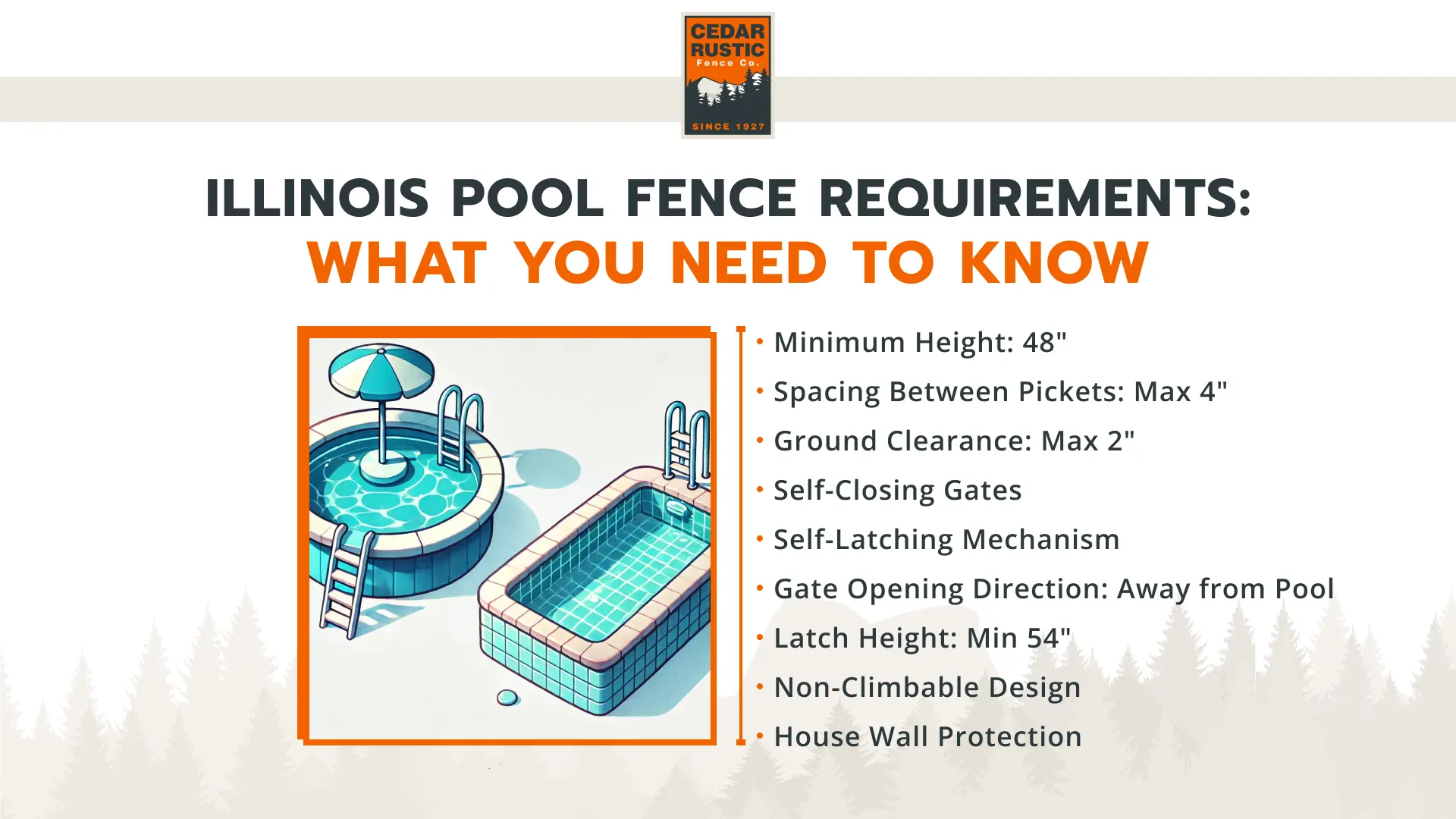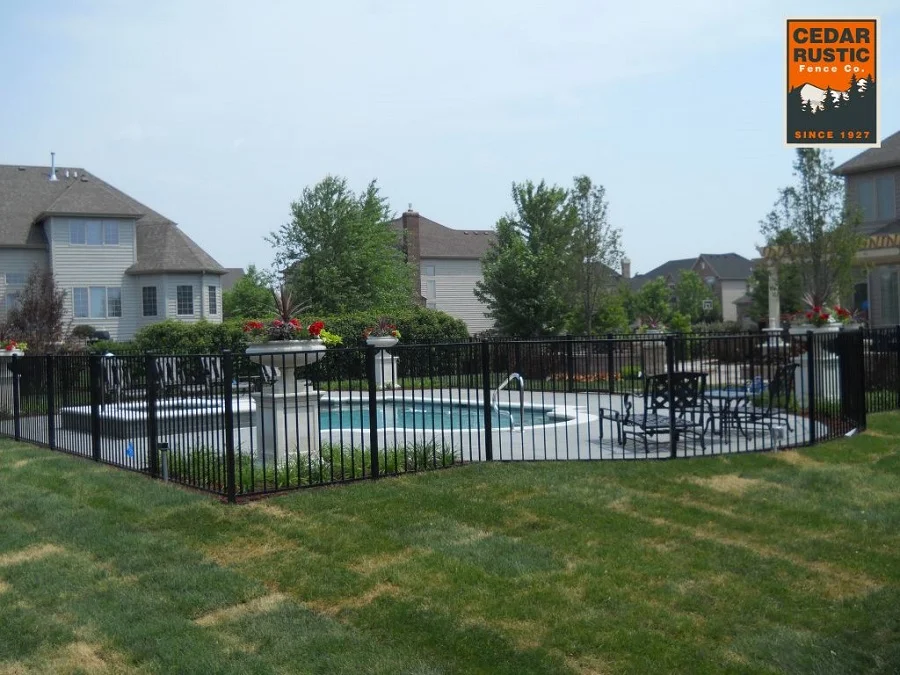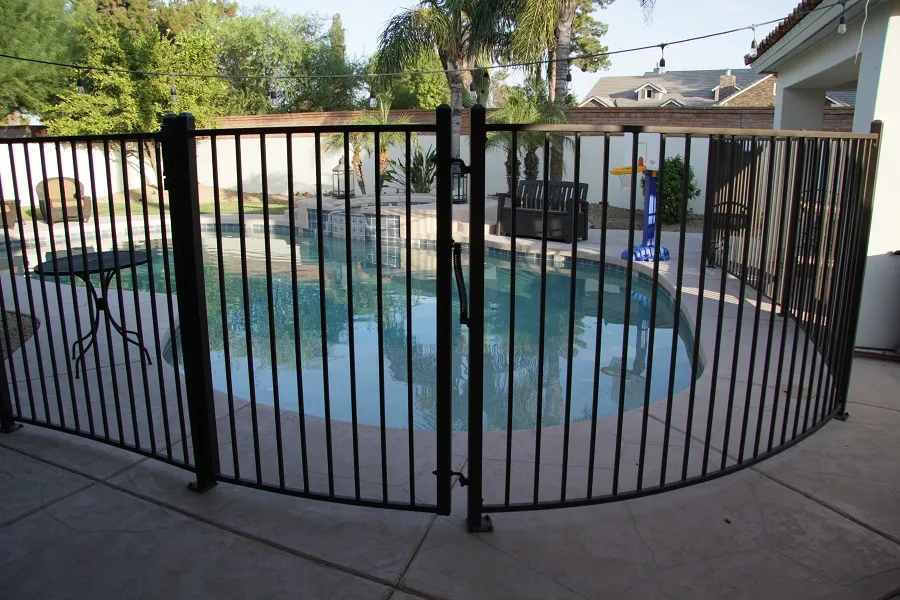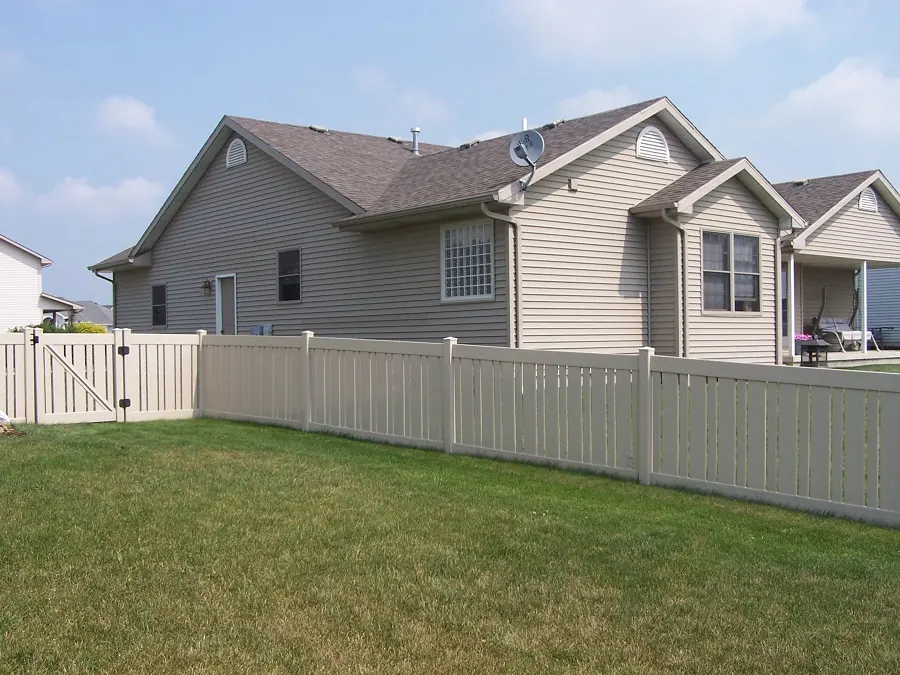Having a pool at home makes summer more fun, but it also means taking safety seriously. Illinois has strict rules for pool fences to help prevent accidents and protect young children.
As experienced pool fence installers throughout Chicagoland, we've guided countless homeowners through the maze of local regulations while creating beautiful, secure barriers that protect what matters most.
If you're a pool owner wondering about legal requirements or considering adding a pool to your property, this guide will help you understand exactly what Illinois law requires.
Illinois State Law: Pool Fence Requirements

Yes, you do. In Illinois, most municipalities require a fence around your residential pool, but requirements vary by location. Unlike public pools which follow state regulations, residential pools are governed by local building codes that typically adopt the International Residential Code (IRC) with individual municipality amendments.
Each village or city adopts its own version of the IRC code (such as IRC 2018, IRC 2021, or IRC 2024) and may add specific local requirements. This means you must always check with your local building department to verify the exact pool fence requirements for your area, as they can differ significantly between neighboring communities.
Typical IRC Requirements (Always Verify Locally)

⚠️ Important: These are general IRC code requirements that most Illinois municipalities follow, but each city or village may have modifications. Always contact your local building department before installation.
- Barrier height Fences must be at least 48 inches tall measured from the outside grade, with no footholds or handholds that would allow a child to climb over.
- If the space between the bottom rail and top rail exceeds 45 inches Spacing between pickets can be no greater than 4 inches.
- If the space between bottom and second rail is less than 45 inches Spacing between pickets must be less than 1¾ inches.
- Gate requirements All gates must swing outward away from the pool, be self-closing and self-latching, with the latch placed at least 54 inches above grade.
- Distance from ground The maximum vertical clearance between the ground and the bottom of the barrier must not exceed 2 inches, preventing children from crawling underneath.
Note: Above-ground pools with walls at least 48 inches high may use the pool structure itself as the barrier, but ladders and steps must be secured, locked, or removed when the pool is not in use. Always verify these requirements with your local building department as municipalities may have different standards.
Chicago-Specific Requirements
Chicago and surrounding municipalities build upon the IRC foundation with their own amendments and additions. Here are some examples of how local requirements can vary:
- Chicago Requires permits for both the pool and the fence. Inspections are done at several points during construction. Check current height requirements as they may exceed the standard 48-inch IRC minimum.
- Naperville Adopts IRC 2018 with local amendments. Requires permits and inspections with specific requirements that may differ from base IRC. Visit Naperville's Building Permits page for current requirements.
- Arlington Heights Has adopted IRC with local modifications. Contact their building department for specific fence height and gate requirements.
- Evanston Follows IRC with additional local amendments including potential requirements for distance from lot lines and emergency access considerations.
For the latest details, check with your local building department or visit your town’s website. Many suburbs also provide easy-to-follow guides that explain the pool fence rules for your area.
Consequences of Non-Compliance
If you don’t follow pool fencing laws, you could face fines of $500 to $1,000 for each day you are in violation. Even more seriously, you could be held legally responsible if an accident happens.
Most homeowners’ insurance policies will not cover injuries or accidents involving a pool that does not meet local code. This means you could end up paying for all medical bills and damages yourself.
When selling your home, improper pool fencing will be flagged during inspections, potentially delaying or derailing your sale. Banks and mortgage companies are increasingly attentive to these safety issues during the appraisal process.
Choosing the Right Pool Fence
Selecting the right fence means balancing code compliance, safety, durability, and aesthetic appeal. Your pool fence should seamlessly blend with your landscape while providing critical protection.
Each type of fencing comes with its own strengths and things to consider, especially when dealing with Illinois’ tough winters and shifting seasons. The best choice depends on what you need, how much you want to spend, and how you want your yard to look.
When considering affordable fencing options, remember that initial cost isn't everything — long-term durability and minimal maintenance often provide better value over time, especially for critical safety features like pool barriers. The perfect pool fence balances safety, durability, and style. Each material has its strengths, and the right choice depends on your specific property needs and aesthetic preferences.












